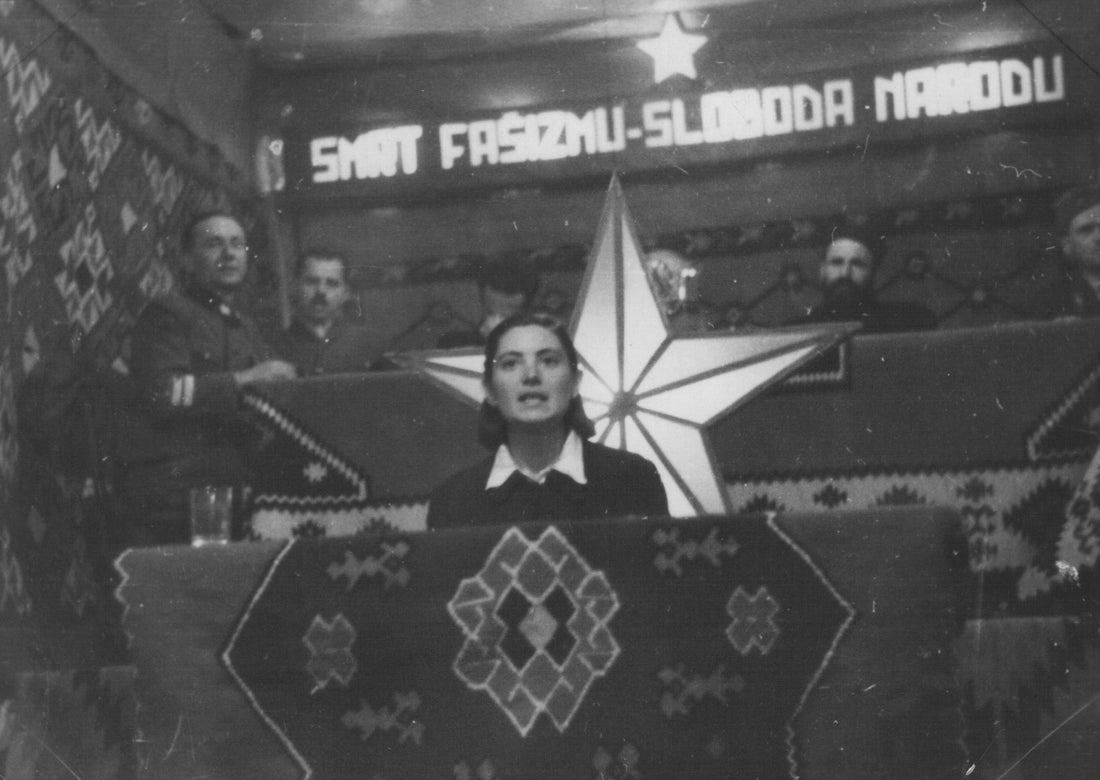
Why you should care about November 25
Share
It was a murky night, with a couple of hours left until the sun comes up. A few hundred people in a slightly cold hall were deliberating for almost nine straight hours. You couldn’t tell it was that long. There were no visible signs of dissatisfaction because this wasn’t your ordinary meeting. On the contrary, cheers thundered through the entire hall. The delegates rose to their feet, while the Slavic hymn “Hej, Slaveni” (“Hey, Slavs”) echoed the auditorium. Afterward, comrade Vojislav Kecmanović announced that the assembly was over.
Those were the final moments of the first ever ZAVNOBIH (State Anti-Fascist Council for the National Liberation of Bosnia and Herzegovina) assembly, held on November 25th, 1943 in Mrkonjić Grad.
Because of it, today we celebrate Statehood Day, the day people of Bosnia and Herzegovina stated loudly and proudly their resolve. The resolve to make this country a joined community where every man and woman will be equal. The resolve to make Bosnia and Herzegovina an equal member of what will later become the Federal People's Republic of Yugoslavia. The resolve to have a home under the stars in the historic boundaries formed all the way back during the medieval times.

The house in which the first ZAVNOBiH session was held
Image credit: Wikipedia
The road to November 25th was a long and arduous. Bosnia and Herzegovina played a significant role in the struggle for the people’s liberation during World War 2, giving many of its sons and daughters to the army who fought against the enemy on all fronts. In his opening remarks, Major General Arso Jovanović, the Chief of the Supreme Command Staff of the National Liberation Army and Partisan Detachments of Yugoslavia, points out that many glorious battles had happened on the territory of Bosnia and Herzegovina. The army Commander-in-Chief, Josip Broz Tito, made virtually every important decision regarding the army operations right there, on this very soil. Bosnians and Herzegovinians, in their hardest of days, welcomed tens of thousands of Yugoslav fighters, giving them whatever help they needed. We were the example of fighting unity to all Southern Slavic peoples.
That unity was apparent during the assembly itself, with countless attending representatives expressing their members’ contributions to the national liberation struggle. As the face of the Women’s Antifascist Front, Rada Vranješević takes the podium. The women of Bosnia and Herzegovina had given a significant contribution to the national liberation struggle. Like Ms. Vranješević, they had become a strong pillar of the national liberation movement. Together with their comrades, women would continue fighting against the invaders and their servants. After the liberation of the country, they would invest all their efforts to build a happy future of Bosnia and Herzegovina as part of federal Yugoslavia.

Rada Vranješević speaking at the State Anti-fascist Council for the National Liberation of Bosnia and Herzegovina
Image credit: Wikipedia
The youth of Bosnia and Herzegovina also played a visible role in the struggle of our peoples for the liberation. They were among the first that had forged the armed fraternity of Serbs, Croats, and Muslims, with a large number of fighters in units being young, often underage people.
The scene is lively. Common people from all parts of Bosnia and Herzegovina are here, expressing their struggles, as well as a fraternal bond with each other. Everybody takes turns in speaking their mind. The religious figures as well show enthusiasm, telling stories and personal accounts about the friendship and unity among different religious groups during these trying times, and how together they were defeating their common enemies.
Everyone gave their best, no matter how big or small, young or old, to bring closer the moment of the ultimate national liberation. The peoples of Bosnia and Herzegovina created their genuinely democratic governance that started with village-like National Liberation Committees and ended with the ZAVNOBIH as the highest political representation of the peoples of Bosnia and Herzegovina. Perhaps the words of Ivan Ribar, the President of the Anti-Fascist Council for the National Liberation of Yugoslavia (AVNOJ), with which he ended his speech, best convey the importance and meaning of one noble idea on that fateful 25th of November, 1943.
“May the unity of the peoples of Bosnia and Herzegovina be firm as the unity of the National Liberation Army, may this fraternity reflect in the fraternity with the other peoples of Yugoslavia!”
Back in 1463, Bosnia lost its statehood to the Ottoman Empire. Almost half a millennium later, its statehood was returned to it by its people. Today, we celebrate it and remember the people that laid the foundation for what we call our country.
